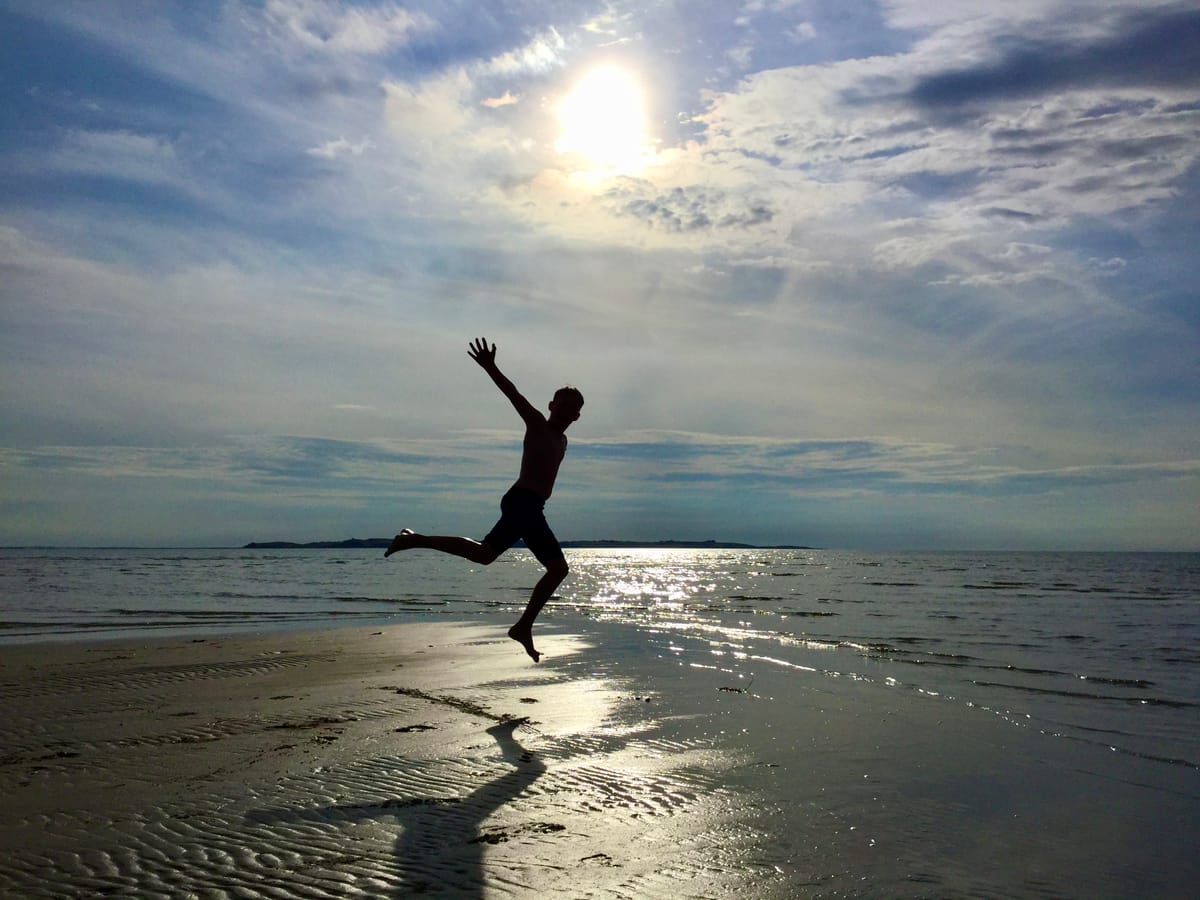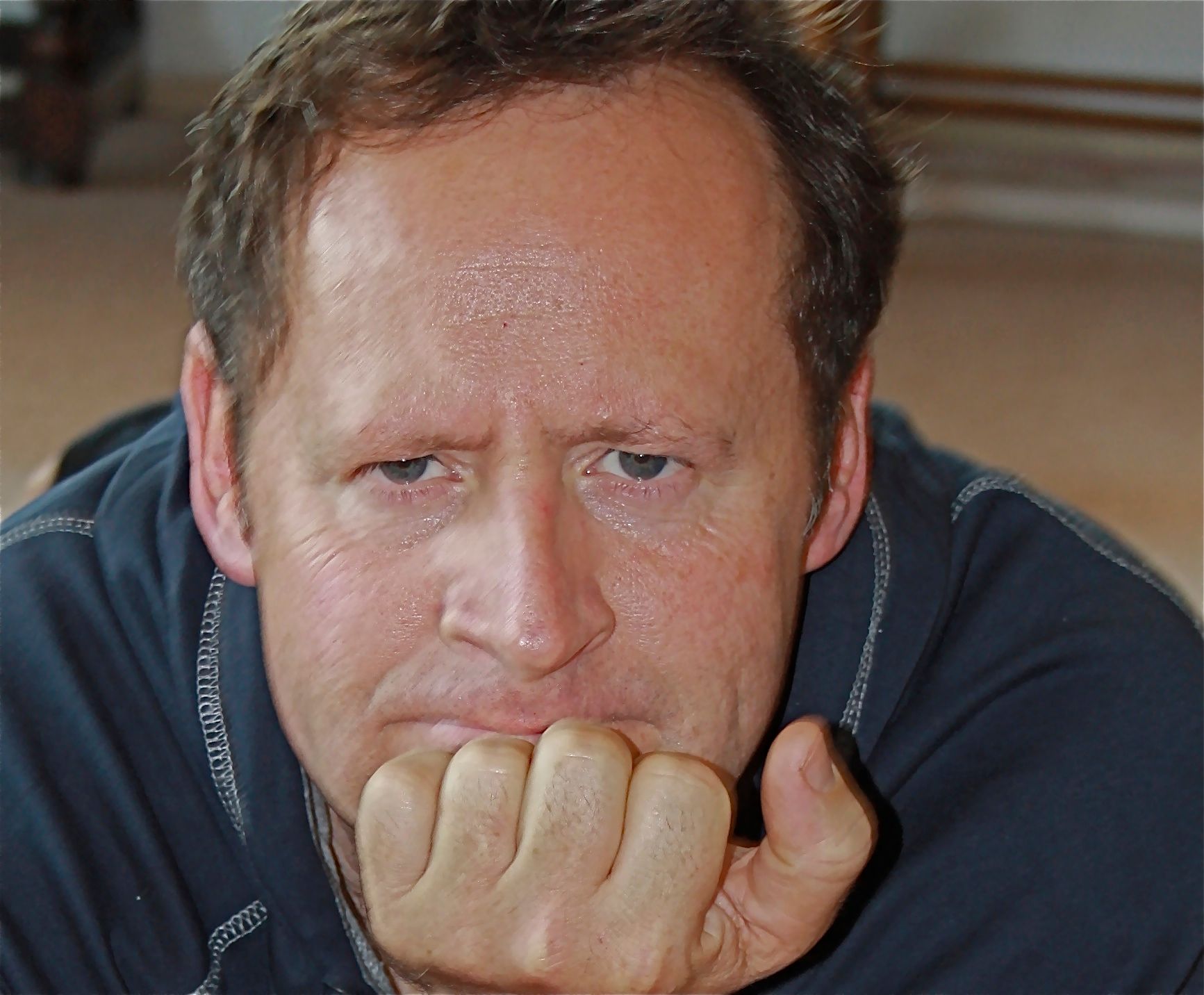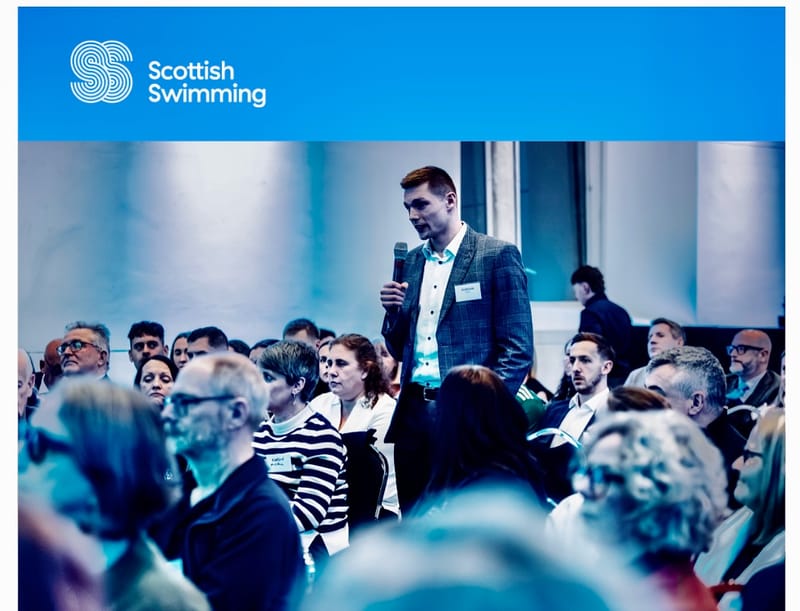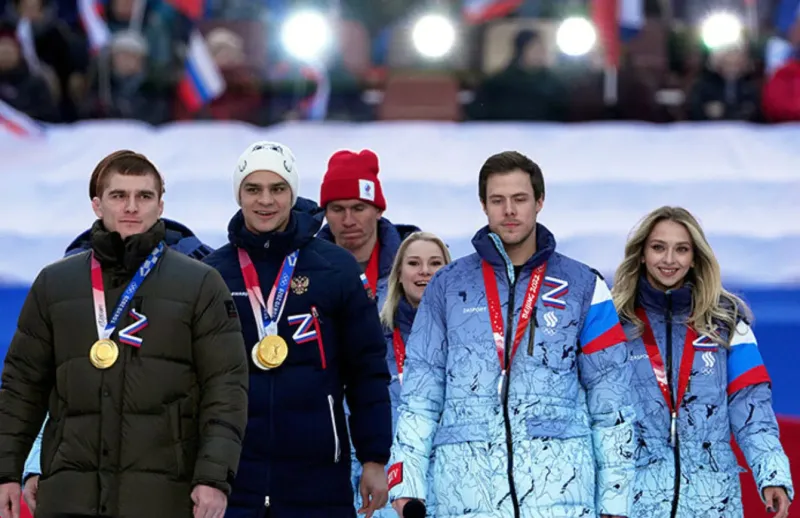New Bylaw 10: All Enhanced Games Sign-Ups Banned From World Aquatics
Global swimming regulator first to act as Magnussen, Govorov, Gkolomeev, Hawke have access cut off: "This new Bylaw clearly affirms World Aquatics' position: people, organisations and competitions that promote or enable doping have no place in aquatics." + Analysis of EG statement
World Aquatics today adopted a new Bylaw that bans any athletes, coaches and others working with the Enhanced Games from participating in any role within the regulated realm of global swimming. Penalties may stretch to a lifetime.
State of Swimming posed the question on the day the Enhanced Games launched last month, May 21.

The global federation for swimming has provided a speedy answer:
The rules and bylaws of World Aquatics, the first global sports regulator to ban those who join the Enhanced Games, apply at the Olympic Games and are likely now likely to be adopted by continental and many domestic federations around the world that are affiliated directly or indirectly to the global regulator.
The World Aquatics Bureau approved the Bylaw during its meeting today, 3 June 2025, and the measure takes immediate effect. The regulator also sent a clear message to all members:
"World Aquatics Member Federations are also encouraged to adopt similar policies at the national level to uphold consistent standards across the sport."
Bylaw 10 includes provision for case-by-case consideration in the event of any objection to the new red line. That nod to legal redress offered, Bylaw 10 makes it clear that all who wilfully opt into use of shiny suits, other 'tech' banned in competitive swimming, doping, methods aimed at manipulating performance through banned practices, will not be welcome back.
For the likes of retired former World champion James Magnussen, of Australia, current but retired World 50 'fly record holder Andrey Govorov, of Ukraine, retired Greek sprinter Kristian Gkolomeev, and former International for Australia Brett Hawke, the U.S.-based coach who has taken up a role with the Enhanced Games, the new rule is likely to mean that they are locked out of any work in the regulated realm, possibly for life, and certainly until they reject enhancement as a very bad idea in the same way as they have recently embraced banned substances and methods as a good idea.
Fuller take...
Swimmers and coaches, doctors and any others who sign up for the Enhanced Games were banned from any return to Olympic swimming under a new World Aquatics Bylaw that was agreed with immediate effect today.
The global regulator's executive adopted a new Bylaw that effectively slaps a ban on any return to the fold, in any capacity, for the big names who are already signed up to embrace practices banned by World Aquatics, including the use of doping, non-textile booster suits and adoption of manipulation methods forbidden under the World Anti-Doping Code.
The four sprint names who have left regulated sport so far are retired former World champion James Magnussen, of Australia, current but retired World 50 'fly record holder Andrey Govorov, of Ukraine, retired Greek sprinter Kristian Gkolomeev, and U.S.-based former international for Australia Brett Hawke, who has taken up a role as head coach with the Enhanced Games.
The doping project was launched on May 21 with news that Gkolomeev had worn a banned suit and taken substances banned by World Aquatics to swim a lonely one-man race down one length of an Olympic pool in a time 0.08sec faster that the official World record of 21.91.
Enhanced Games paid the Greek swimmer $1 million for "breaking the existing World record", when in fact, he did no such thing because he broke several rules that must be met for anyone wishing to set a World swimming record.
If the doping and the non-textile suit ticked two banned boxes, then the lack of a doping test, the fact that Gkolomeev is no longer registered for regular testing in the anti-doping pool, and failure to register and announce any record-attempt covered several other conditions he would have had to have met.
World Aquatics today said that its new Bylaw "reinforces" the federation's "steadfast commitment to clean sport". In a statement just issued, the regulator noted:
"Under the new Bylaw, individuals who support, endorse, or participate in sporting events that embrace the use of scientific advancements or other practices that may include prohibited substances and/or prohibited methods will not be eligible to hold positions with World Aquatics or to participate in any World Aquatics competitions, events, or other activities. This ineligibility would apply to roles such as athlete, coach, team official, administrator, medical support staff, or government representative ... This new Bylaw clearly affirms World Aquatics' position: people, organisations and competitions that promote or enable doping have no place in aquatics."
World Aquatics President Husain Al Musallam added:
"Those who enable doped sport are not welcome at World Aquatics or our events. This new Bylaw ensures that we can continue to protect the integrity of our competitions, the health and safety of our athletes, and the credibility of the global aquatics community."
The new World Aquatics Bylaw 10 - Ineligibility
"The following new By-law is adopted by the Bureau further to Article 17.1(c)
of the World Aquatics Constitution, to come into effect immediately:
"The purpose of this By-law is to support the values of the Olympic Movement, including the commitment to the World Anti-Doping Code, and to protect the integrity and the image of Aquatic sports, and the health, safety and well-being of
Aquatics Athletes. It complements the separate and independent obligation that is owed by those who are subject to the Rules and Regulations not to do anything that brings Aquatic sports into disrepute.
For purposes of this By-law, a ‘Relevant Person’ means any
individual who:
- 10.2.1 is presented by a National Federation to World Aquatics
(i) for registration to participate (in any capacity) in a
World Aquatics event or competition; or (ii) as a candidate
for election or appointment to any World Aquatics office
or other position, or to a World Aquatics committee or
other body; and - 10.2.2 at a time when they were not subject to the Rules and
Regulations:
(i) actively supported or endorsed a sporting event or
competition that embraces scientific
enhancements that include the use of Prohibited
Substances or Prohibited Methods (as those terms
are defined in the Doping Control Rules) and/or the
use of any illegal drug; and/or
(ii) participated (in any capacity) in any such event or
competition; and/or
(iii) supported (e.g., as a coach, trainer, manager,
training partner, doctor, or physiotherapist) any
other person in their preparation for and/or
participation in any such event or competition.
A Relevant Person shall not be eligible: - 10.3.1 to be accredited for and/or to participate (in any
capacity) in a World Aquatics event or competition; - 10.3.2 to be employed or engaged by World Aquatics;
- 10.3.3 to be elected or appointed to any World Aquatics
committee or other body or to any World Aquatics office
or other position; or - 10.3.4 to participate in any other activity organised by World Aquatics.
The Bureau shall decide on the application of this By-law in
each particular case. A decision by the Bureau that a person is
110.5 ineligible under this By-law may be challenged only by that
person, and only by appealing that decision to the Court of
Arbitration for Sport (CAS) in accordance with Article 31.2 of the
World Aquatics Constitution. That person may not challenge
this By-law or that decision in any other forum; and no one else
shall have standing to challenge in any forum, or to appeal
against, either this By-law or any decision made by the Bureau
pursuant to this By-law.
Member Federations may choose to apply a similar policy for
national competitions and events under their jurisdiction. Any
such policy or consequent decision at a national level shall not
impact or limit in any way the powers of the Bureau under By-
law 10.3.
SOS Coverage of swimming reaction to the Enhanced project now banned from the World Aquatics realm:





An analysis of a response from Enhanced Games follows...











